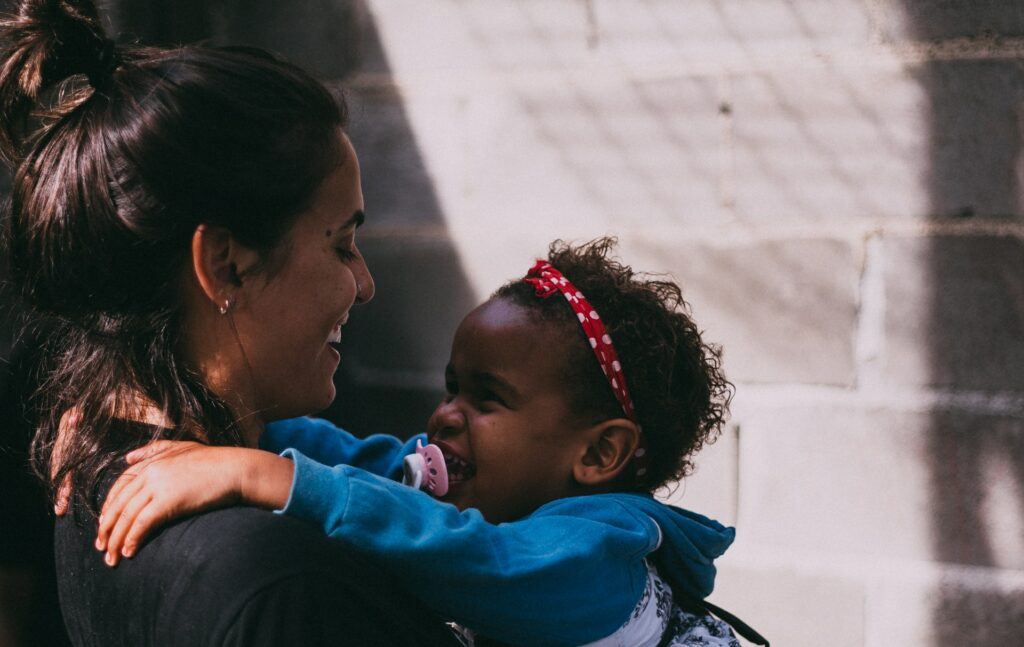To save money and improve family ties, many families choose to have their Child Care for by extended family members. In a nutshell, the answer is “it depends,” In many cases, excellent communication is the key to making the arrangement work and being positive.
Hours of service, payment, and other issues
While it is true that your child is being cared for by a family member, this does not suggest that you should be free to postpone picking him up or that you should be cautious about which days you should bring him home with you. Whatever the case may be, whether it’s your mother, Aunt Louise, or Cousin Pat, you should be prepared.
The same typical politeness should be provided to your family member as it would be to any other caregiver. Predetermined hours of care are essential. Don’t forget that after a long day of caring for a youngster, everyone needs a break. Make sure to talk about payment as well. Some members of the family are paid as though they were receiving in-home care.

The parent should still pay for all necessary Child’s Care supplies and food, even if other members offer the service for free. If a member of your family becomes ill or if your child cannot participate in a social scenario, you should have a contingency plan to fall back on.
Arrive at the event prepared with a list of rules to follow and rules not to pursue:
To be on the safe side, make sure you tell your caretaker if you don’t want your child going to the park or swimming. Please specify whether you don’t want him to watch more than one movie a day. Relatives should be informed that juice should not be given to children if the dentist has advised against it. The caregiver should be informed.
Be aware that while you may have established rules and preferences, your relatives may not have. Make sure you’re prepared to adapt a bit as well. They assume that a relative to keep up with all of the children’s dietary choices, especially at mealtimes, is unrealistic.
Establish a set of disciplinary measures that are acceptable:
Consistent methods that can be used in any environment are critical in Child’s Care for instilling positive discipline habits in children. This is despite their close friendship. It is critical for all family members to comprehend, accept, and feel at ease with the process of child discipline.
Tell your relative about the specifics of your child’s life:
A child’s habits and rituals are highly significant. The more information you can give your family caregiver, the more likely it is that you and your loved ones will communicate effectively. As a parent, you want to ensure that your child has a positive experience with their caregivers. Due to her lack of understanding of what your child wants and needs. Describe your favorite pastimes and daily routines, including when you go to bed, how often you use the restroom, and what you like to eat.

When not in a formal Child Care environment, allow relatives to be just that:
Family members should not be taken advantage of when babysitting your children during family functions or other activities. For the holidays and other special occasions, let your grandmother return to being your grandma and not your “caretaker.” It’s possible that you don’t want your child’s “grandma the caregiver” to offer them treats, but seeing her snatching one from a party can get you to ignore her. That is unless there is a legitimate medical reason not to administer it. They also value their unique relationship as a family, not as the caregiver in charge.
Personal or family disagreements can sully caregiver relationships:
To keep “family” out of the way of a successful Child’s Care arrangement, you may have to put in some extra work on your part. In other words, avoid or minimize any situation that could lead to a conflict between you, your child, and the relative taking care of them. This includes family gossip. This arrangement takes a lot of attention and care. You don’t want an uninvited mat outside on Monday morning because of a family fight on Saturday. Talking about your desire to retain a loving, comfortable, and a familial relationship is also a good option.

How determined you are to make this work. In contrast, if the arrangement isn’t working out, don’t be scared to call it a day on it. Maintaining your family’s identity is essential, even if they aren’t responsible for your child’s well-being. When it comes to honesty, you should temper it to think a different relationship could be better all around. Forge an intimate relationship with loved ones without the added burden of child-rearing responsibilities.
Make sure to thank your loved ones:
When a relative is babysitting for you, please don’t take it for granted and always express your gratitude. For the sake of your Child’s Care, realize that “being family” is not an excuse for you to neglect them. Consider inexpensive and creative methods to express your gratitude to them. Perhaps you and your youngster can assist in the weed the garden or putting in seasonal flower beds together.
Reassess the situation and your child’s progress from time to time:
Discuss your child’s growth and development from time to time. Disclose any worries or objectives you have. Organize ahead of time for any future need or unique events. Remember that relative care can provide a loving and nurturing environment for your child.

Are the Child Care services taking place in someone else’s home?
Some relatives are willing to monitor children at their own homes, while others prefer to do so at the child’s place. Everything is reliant on the caregiver’s decisions in each situation, which has its own set of pros and disadvantages. Some caregivers prefer to keep a child, especially a small one, at their house. They can continue to take care of their requirements and enjoy their current environment. Several people prefer to monitor a child in the child’s own house because that is where the child’s clothes and toys are. Make sure that fundamental safety requirements are followed wherever Child’s Care is to be provided.

Leave a Reply